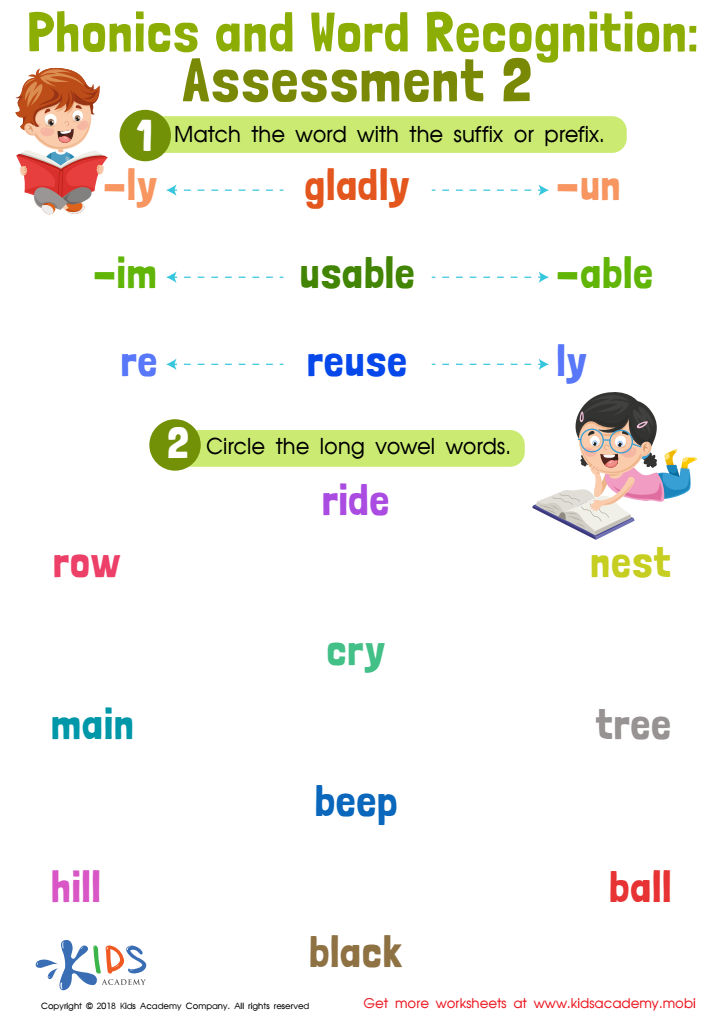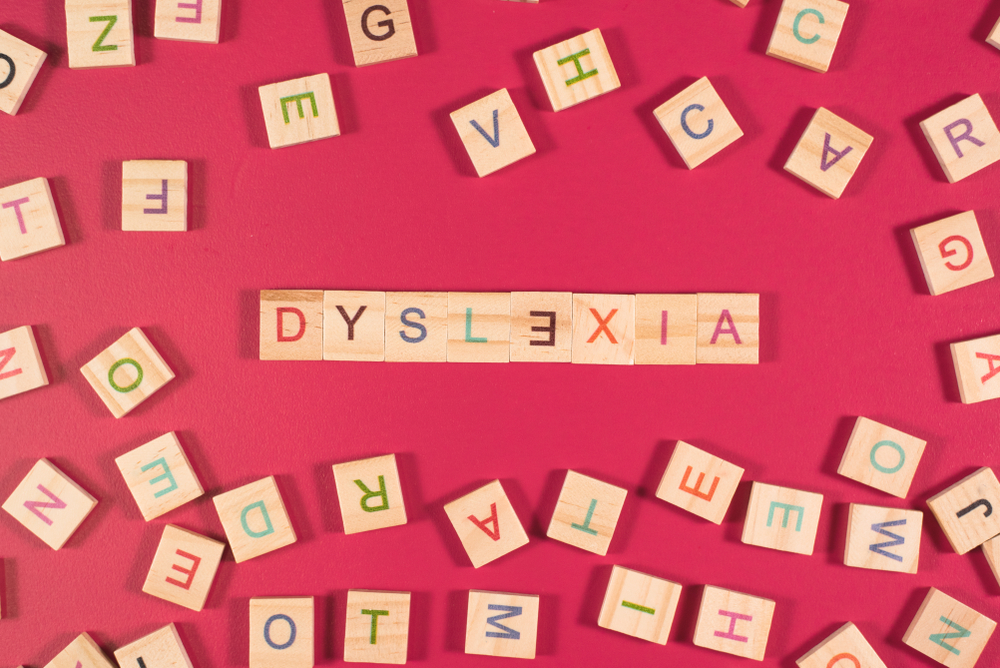Alphabet worksheets activities for Ages 7-9
7 filtered results
-
From - To
Welcome to our engaging Alphabet Worksheets Activities for ages 7-9! Designed to reinforce key literacy skills, these worksheets offer fun and interactive exercises that enhance letter recognition, phonics, and spelling. Children will enjoy variety in activities, including letter matching, fill-in-the-blank exercises, and creative word games. Our resources encourage critical thinking while making learning enjoyable. Perfect for home or classroom use, these activities support young learners in building confidence and proficiency in their reading and writing. Explore our collection today and watch your child flourish in their alphabet mastery as they embark on an exciting educational journey!


Let's Check Long Vowels: Assessment Worksheet


Phonics and Word Recognition: Assessment 3 Worksheet


Phonics and Word Recognition: Assessment 1 Worksheet


Long and Short Vowel Sentences: Assessment Worksheet


Phonics and Word Recognition: Assessment 1 Worksheet


Phonics and Word Recognition: Assessment 2 Worksheet


Phonics and Word Recognition: Assessment 2
Parents and teachers should care about alphabet activities for ages 7-9 because these activities play a crucial role in strengthening foundational literacy skills. During this stage, children are transitioning from learning to read to reading to learn. Engaging in alphabet activities enhances their phonemic awareness, spelling, and vocabulary development, which are essential for overall academic success.
Moreover, these activities foster critical thinking and creativity. Through fun, interactive alphabet games, children are more likely to stay engaged and motivated to learn, which can enhance their love for reading. This passion for reading not only benefits their literacy skills but also supports cognitive development, social skills, and emotional understanding.
Additionally, incorporating alphabet activities in this age group can help address varying learning styles. Whether through visual aids, auditory games, or kinesthetic activities, there is an opportunity to reach each child where they are and support their individual growth.
Overall, alphabet activities are not just about letters; they are about nurturing confident readers who can curse through more advanced texts and understand complex ideas. Investing time and resources in these activities lays a strong educational foundation for future learning.
 Assign to My Students
Assign to My Students















